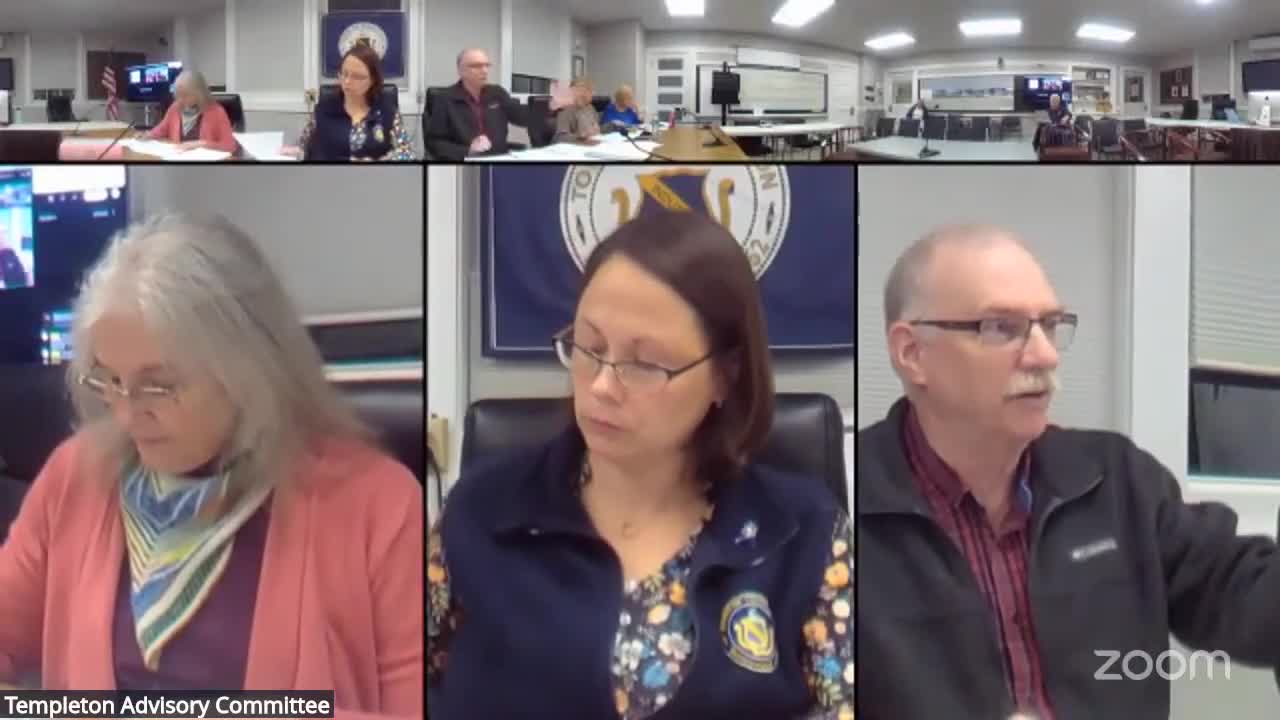Petitioner seeks moratorium and home‑rule authority on water fluoridation; water superintendent urges removal on cost and safety grounds
Get AI-powered insights, summaries, and transcripts
Subscribe
Summary
Two citizen petitions would (1) institute a moratorium on adding fluoridation chemicals to Templeton’s public water supply pending the outcome of an EPA appeal in a federal court case and (2) seek a home‑rule law shift to give annual town meeting authority over fluoridation decisions.
Two citizen petitions on municipal water fluoridation drew extended public comment and technical response at the Templeton Advisory Committee pre‑town meeting.
Julie Farrell, the petitioner on Articles 9 and 10, told the committee she will move a substitute motion for Article 9 to pause fluoridation “until such time as the court of appeals has decided the case” in a federal lawsuit she cited. Farrell said a U.S. District Court judge in the Northern District of California found that it is “reasonable to assume” that some fluoridation chemicals can lower children’s IQ and directed the Environmental Protection Agency to reexamine its rules; the EPA is appealing that decision. Farrell said Article 10 is a home‑rule petition intended to give annual town meeting explicit authority to decide whether to fluoridate the public water supply if the Legislature grants the home‑rule exemption.
Scott Schwinger, superintendent of the Templeton water department, addressed operational, safety and financial issues. He told the committee the department favors removing fluoride from the public system for reasons that are primarily financial and workplace‑safety related. Schwinger described the raw fluoridation chemical as a caustic powder that requires staff to use gloves, eye protection and respirators when handling it; he said accidental contact produces chemical burns and that handling the product adds an occupational risk for operators.
Schwinger quantified direct costs and near‑term capital needs: he said the system currently costs roughly $8,000 a year for chemical purchases and that new analyzer equipment required by regulators could cost roughly $16,000–$22,000 per station plus reagent consumables; the department expects additional monthly reagent costs in the hundreds of dollars and must file daily, monthly and annual reports to the Department of Public Health and DEP. He said if the town continues fluoridation the department faces substantial compliance and equipment spending by 2027.
Petitioner Farrell and the water superintendent agreed the process is complex and that legal, regulatory and budget timelines will control possible next steps; the committee did not adopt a formal position on the citizen petitions at the pre‑town meeting. Committee members asked for clarifying materials that petitioners and staff said they will provide at the town meeting, including legal counsel input on the home‑rule petition language and tax/qosmetic impact projections or alternative options.
Votes on the petitions will be considered at the special town meeting if they remain on the warrant.
